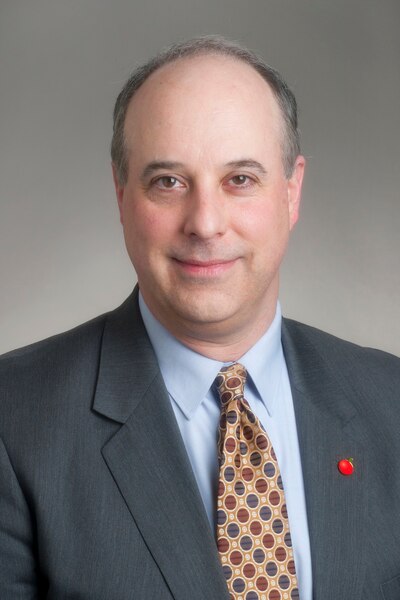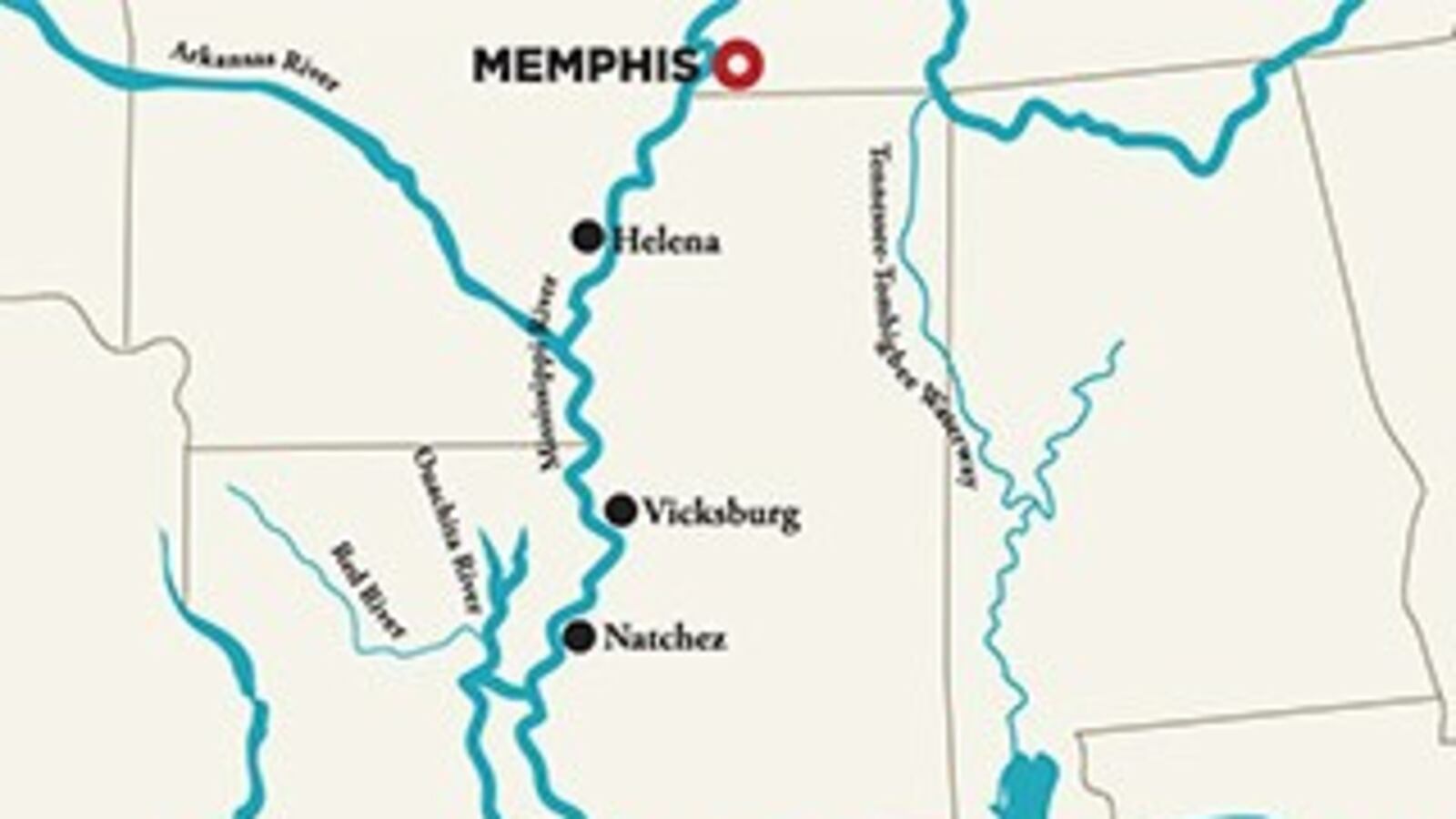Memphis and Shelby County are in the midst of a rapid expansion of the charter school sector, as we reported late last week – and that expansion is not likely to end soon. Many existing charter schools in the city are adding grades, and both Shelby County Schools and the state-run Achievement School District (ASD) intend to authorize more of the publicly-funded, independently run schools to operate in the district.
Chalkbeat spoke with Greg Richmond, the CEO of the National Association of Charter School Authorizers, about what Shelby County citizens and educators should be aware of as the number of charter schools grows. He highlighted questions about high discipline rates in charter schools, whether or not the schools are serving special needs children, school board transparency, and coordination between agencies.
Many of the questions Greg raised and the answers he shared are based on what has happened in New Orleans, where most students now attend charter schools. The ASD is modeled after Louisiana’s Recovery School District, and education leaders in Memphis have said they hope to model the city’s school system after New Orleans.
Conversation edited for length and clarity

What can Memphians expect as the number of charter schools in the city grows?
New Orleans certainly provides a glimpse, as the one place in the country that very closely mirrors this. In New Orleans, growth has surfaced issues around charter schools: How do you have a system of public education that’s based on choice, yet still make sure all kids are served? Still make sure all students with disabilities are served? Make sure families have a place to go? Make sure you have the right number of elementary and public schools? In New Orleans, we did a lot around standardizing enrollment systems. We also wrestled with issues of neighborhood preference zones. That’s fascinating because they started out with no zones, everything’s open enrollment – and over time more and more families were saying, I’d prefer not to have to send my 8 year old across the city. So folks say – let’s create some preference zones for neighborhoods. But then there was pushback to that, where some who lived in neighborhoods with worse schools felt that was a way to keep them out of good schools. We also had to deal with special ed, with discipline policies, with midyear transfers between schools. In most cities, the charter schools are small enough that they haven’t forced system-wide solutions around these things. But if Memphis continues on the track of adding more and more charters, very soon Memphis will have to develop answers.
As a reporter, it’s fascinating to see how different this looks in different cities. It seems that people should come along and say, okay, if we’re going to have charter schools, we also have to have a, b, and c, because x, y, and z are going to come up.
In a lot of cities, the folks running charter schools and advocates for charter schools view addressing these issues with a lot of…caution, because the solutions to those questions inevitably mean a charter school no longer can do whatever it wants. And that’s exactly what we’re seeing in New Orleans, those limits. In most cities, folks in charter sectors are hearing about those questions, and they’re usually not questions, they’re political attacks. And the charter sector says, you’re just saying that because you hate charter schools. It just gets nowhere. What we’ve seen in New Orleans is, the charter folks said, okay, there is no one else. So we have to solve these things. I’d like to see charter proponents stepping up and being part of the answers to those questions. You can actually produce solutions to these issues and still preserve autonomy. You don’t need to and shouldn’t wait until the city is 50 percent or 80 percent charter schools. You can and should be answering these questions regardless of what percent of students are in charter schools.
So how would you sum up this group of issues that come up when you have a lot of charter schools – serving kids with disabilities, expulsion rates, etc? Is it about fairness?
Part of it is fairness. Because charter schools are public schools, they need to be able to serve or be available to all kids. That includes students with disabilities, for instance. That doesn’t mean every charter school is the right placement for any student with a disability. But you can’t just say, I’m a charter so I’m not even going to consider serving kids with disabilities. But there’s also an element of making sure the system can deal with this. The fact that one school has a discipline school that’s different than other schools – okay, that doesn’t really create problems for the system as a whole. But if it’s 90 percent of the schools, there’s all kind of externalities, and you have to come up with a macropolicy to deal with it. Again, New Orleans has done this for discipline policies.
I wonder about who makes sure these systemwide solutions get implemented when there are two agencies running schools.
That’s a good observation. When you do have two systems, it’s certainly helpful if they’re reasonably aligned. Does alignment have to happen? New Orleans will show you, it wasn’t happening there and the two systems were still able to function. Some folks will tell you even now that there are issues. In New Orleans, the RSD was the thought leader, coming up with solutions around special ed, discipline, and more. But I don’t think there’s anything inherently better about people who happen to work for state government rather than school boards. The ASD is able to do things because it’s new, not because they happen to be the state. They have to think of things from scratch, they’re not hindered by generations of past decisions.
What about transparency? There was a story in the news today about a charter school that had illegal board meetings.
This is a big issue. One aspect of being a public school is transparency. Can you go to board meetings, get documents at these schools? The legal answer is supposed to be yes. Certainly you see variation in how well different schools do any of that. One of the responsibilities of an authorizer is to try to ensure that the schools are complying with all of those transparency laws, and nobody should be dismissing it as unimportant because to be a public school that’s all part of the deal. Part of the problem is technical: A lot of people don’t know what’s required by law. But some (governing boards) don’t seem to respect them. It’s not like they care and are just struggling to faithfully implement the law.
What about parents? It seems to me that in charter schools parents sometimes don’t know where to go if they have an issue.
It’s particularly important for parents at a school to know that there is a board of the school, that they have public meetings, when are the meetings, you can come, you can meet members. A lot of parents don’t know that. I used to be an authorizer in Chicago. We were a huge city, and we’d get calls regularly from parents with questions, complaints. A lot of it was, my little Johnny did this and they suspended him and that’s not fair. I always asked – did you talk to (the) principal? And they’d say, well she’s no good, that’s why I’m upset. And I’d say, did you talk to the board? And many times they’d say- well no, is there a board? And that’s actually your appropriate next step as a parent – to go to a board meeting and bring up your complaint. As an authorizer, I can intercede if the school is doing something illegal. But rarely was it illegal – usually it was management style. I can’t intervene there. But the board can. That’s why it’s important for parents to know.
On local boards and out-of-town schools:
Over time what happened in New Orleans is there definitely developed a segment of the community that developed the opinion that charter schools are really a bunch of outsiders: They’re approved by state board, run by a lot of folks from out of town, out of the state, there are all these TFA (Teach For America) kids coming. Definitely a narrative developed that charters are something being done to us by outsiders. There was a racial dynamic to this too. Which rarely had to be stated but it was there. One of the things charter supporters said in response was that there are dozens of charters here, and each have local people on their board. It was well over 300 New Orleans residents now on the boards.


